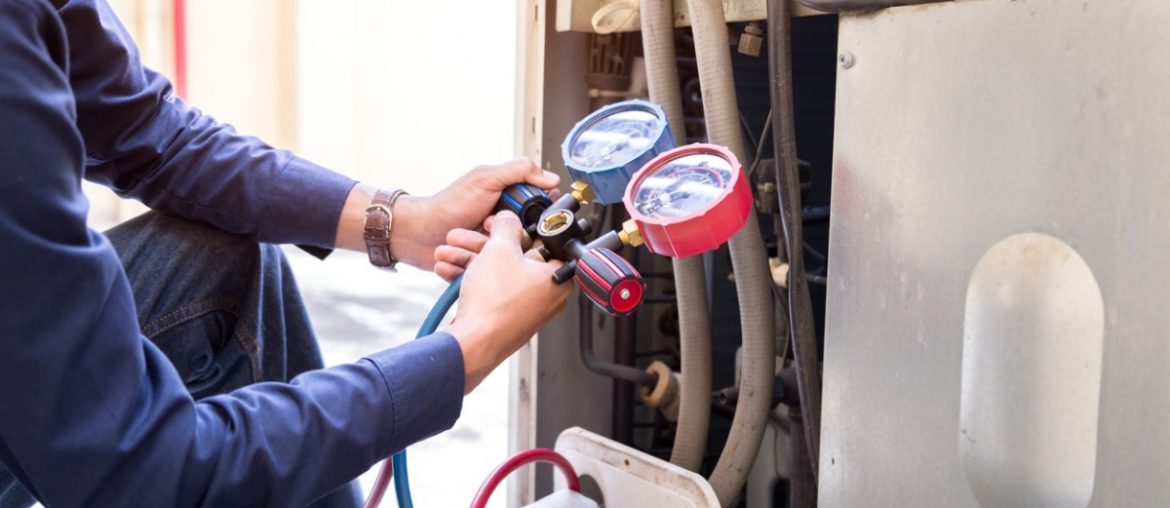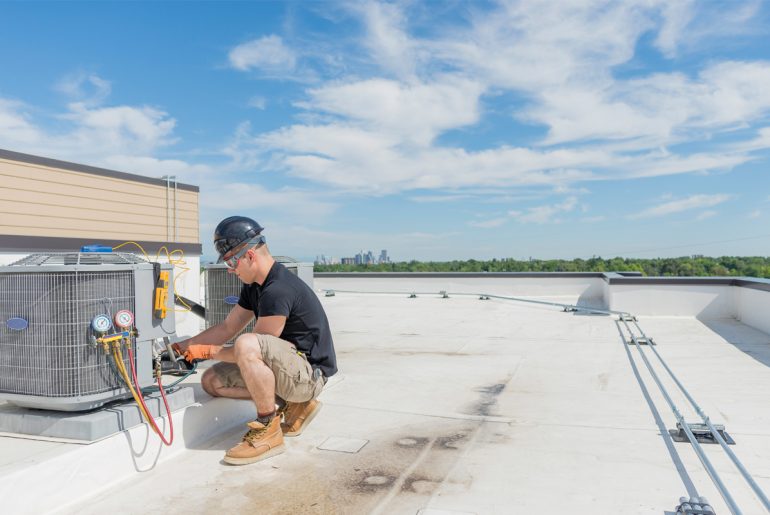Hiring quality HVAC technicians is crucial to your business. However, to set a salary that will attract the best candidates, you should consider the typical HVAC salary in your state.
How much does HVAC make when starting out or becoming more skilled? Entry-level HVAC technicians earn roughly similar wages across the nation, give or take a few thousand dollars annually. However, as they gain more experience, education, and credentials, an HVAC technician’s salary can improve significantly.
This guide provides a state-by-state comparison of HVAC tech salaries and insights into what circumstances can increase HVAC control technician salaries.
- HVAC Salary by State in 2024
- Best States for HVAC Technicians in Terms of Salary
- Lowest-Paying States for HVAC Tech Salary
- What are the Best Metropolitan Areas for HVAC Salary?
- Why Do Some States Pay HVAC Technicians More?
- Considering the Cost of Living
- How Education Level Affects HVAC Technician Salary
- Licensure and HVAC Salary
- Why Paying HVAC Technicians More Could Pay Off
- Start Using HVAC Software
- Benefits of using Service by WorkWave
- HVAC Salary: Frequently Asked Questions
HVAC Salary by State in 2024
Wage data for HVAC technicians varies by source. The following table includes HVAC salaries by state based on 2022 data at the time of writing from Indeed and the Bureau of Labor Statistics (BLS) to serve as a more accurate picture of the potential range of the average HVAC technician salary for each state.
Note that these figures do not include commissions, bonuses, or any other additional compensation that HVAC technicians may receive.
| State | Average Base Salary (per Indeed, March 2022) | Average Salary (per BLS, May 2020) |
|---|---|---|
| Alaska | $46,159 | $79,630 |
| Arizona | $46,149 | $49,100 |
| Arkansas | $42,186 | $41,750 |
| California | $50,022 | $63,560 |
| Colorado | $47,891 | $55,650 |
| Connecticut | $47,585 | $64,370 |
| Delaware | $44,828 | $53,950 |
| Florida | $44,174 | $45,450 |
| Georgia | $45,154 | $45,960 |
| Hawaii | $45,260 | $65,640 |
| Idaho | $42,147 | $46,680 |
| Illinois | $46,833 | $58,740 |
| Indiana | $43,477 | $54,540 |
| Iowa | $44,071 | $53,280 |
| Kansas | $42,955 | $54,130 |
| Kentucky | $42,603 | $44,600 |
| Louisiana | $43,117 | $48,140 |
| Maine | $43,771 | $50,380 |
| Maryland | $47,945 | $63,990 |
| Massachusetts | $49,518 | $64,760 |
| Michigan | $44,602 | $52,590 |
| Minnesota | $46,557 | $62,820 |
| Mississippi | $41,095 | $44,220 |
| Missouri | $45,115 | $48,390 |
| Montana | $42,067 | $47,850 |
| Nebraska | $43,545 | $52,480 |
| Nevada | $45,123 | $55,820 |
| New Hampshire | $44,325 | $56,660 |
| New Jersey | $48,074 | $63,460 |
| New Mexico | $44,201 | $45,840 |
| New York | $49,146 | $63,080 |
| North Carolina | $44,747 | $46,300 |
| North Dakota | $44,356 | $55,630 |
| Ohio | $44,175 | $49,910 |
| Pennsylvania | $45,521 | $54,740 |
| Rhode Island | $45,580 | $61,790 |
| South Carolina | $43,462 | $47,080 |
| South Dakota | $42,822 | $50,520 |
| Tennessee | $43,871 | $44,000 |
| Texas | $46,028 | $49,360 |
| Utah | $44,120 | $52,400 |
| Vermont | $43,386 | $54,390 |
| Virginia | $47,105 | $51,330 |
| Washington | $48,855 | $65,180 |
| West Virgnia | $41,766 | $44,040 |
| Wisconsin | $44,383 | $55,980 |
| Wyoming | $43,388 | $50,970 |
Best States for HVAC Technicians in Terms of Salary
According to Indeed’s data, California has the highest-paying HVAC base salary at just over $50,000 per year. Close behind are Massachusetts, New York, Washington, and New Jersey.
Data from the BLS shows higher figures across the nation, with Alaska paying significantly more annually than other states. Hawaii, Washington, Massachusetts, and Connecticut also top the list as some of the best-paying states for HVAC technicians.
Lowest-Paying States for HVAC Tech Salary

Arkansas, West Virginia, Tennessee, Mississippi, and Kentucky are the few states with the lowest average HVAC tech salaries. Looking strictly at the BLS data map of annual mean wages, a group of southeastern states, such as North Carolina, Georgia, and Florida, have the lowest wages.
According to a report from Arizton Advisory and Intelligence, the northeastern and southeastern HVAC markets took a hit in 2020, primarily due to the COVID-19 pandemic. A lack of workers and limited supplies stalled HVAC services and projects, which could account for some of the country’s wage disparity in the southern part.
However, the same report projects the United States HVAC industry to expand by 4% from 2019 to 2025, so it’s possible that average wages may increase along with industry growth across the board.
What are the Best Metropolitan Areas for HVAC Salary?
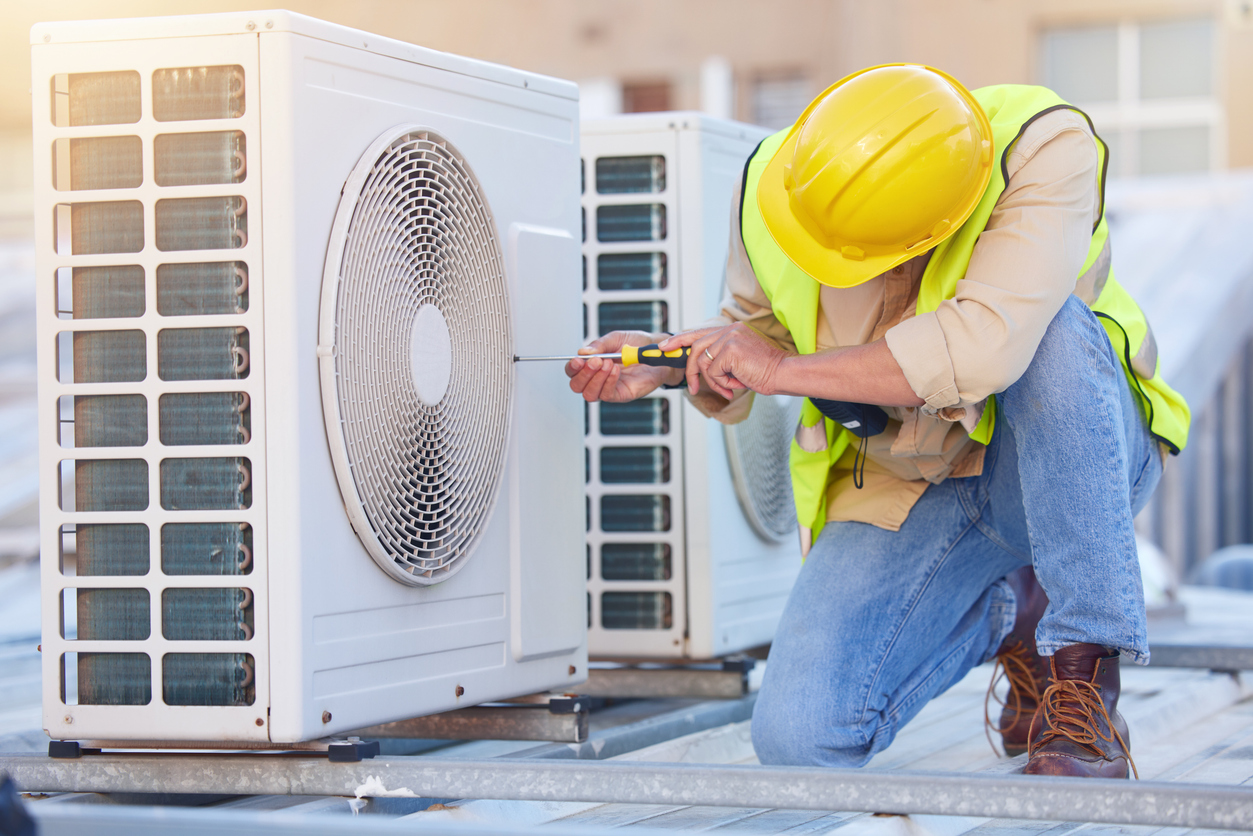
Metropolitan areas tend to have higher living costs than suburban and rural areas. Therefore, these areas usually come with higher wages, regardless of industry. HVAC service technicians may make more in metro areas, and like states, some cities pay more than others.
According to BLS data, the following metropolitan areas are some of the highest payers for HVAC professionals based on average annual salaries:
- Fairbanks, Arkansas: $91,840
- Napa, California: $82,650
- Santa Cruz-Watsonville, California: $76,440
- San Francisco-Oakland-Hayward, California: $76,180
- Anchorage, Alaska: $75,740
Why Do Some States Pay HVAC Technicians More?
The demand for HVAC technicians varies by state, similar to how some states need cybersecurity professionals more than others. Each state has dominating industries, and HVAC is simply more prominent in some areas of the country than others.
For example, a modern desire for sustainability has made HVAC services more important than ever before, as HVAC systems are responsible for as much as 60% of a structure’s energy consumption. Therefore, energy-efficient states, such as California, Massachusetts, and Vermont, could continue to demand more HVAC technicians, leading to higher potential salaries for qualified professionals.
As of 2018, Statista lists California and New York as having some of the highest numbers of HVAC establishments. They’re also two of the highest-paying states in the country, indicating that their demand for qualified technicians may lead to better salaries.
Get Started With Service Software!
Considering the Cost of Living

The cost of living also affects HVAC salaries across the nation. Each state differs in its housing, transportation, utilities, and other costs that affect daily living. In states with a high cost of living, wages tend to be higher to balance costs.
According to World Population Review, Hawaii, California, and New York have the highest cost of living. These states also pay HVAC technicians some of the best salaries. Likewise, states with low cost of living, such as Mississippi, Arkansas, and Oklahoma, fall on the lower end of the HVAC pay scale.
How Education Level Affects HVAC Technician Salary
An HVAC education program allows learners to build their skills and gain hands-on practice with tools and techniques they’ll use on the job. These programs range from several weeks to a couple of years, depending on the certificate or degree a student pursues.
Because graduates complete the program with advanced skills and knowledge, a higher salary usually comes with their credentials. An undergraduate degree in HVAC can lead to a 32% higher median salary than someone without a degree.
Licensure and HVAC Salary
Obtaining an HVAC license not only enhances the skillset of a technician but also opens up the possibility of earning a higher salary. It is worth noting that certain HVAC jobs are better compensated than others. Therefore, if one aspires to pursue the highest-paying HVAC jobs, obtaining licensure can be a valuable step in that direction. According to Payscale’s February 2022 reported salaries, technicians earn an average of $63,264 a year. However, with a master HVAC license, they earn an average annual salary of $77,000.
HVAC technicians with licensure and a degree could increase their salaries even more.
Why Paying HVAC Technicians More Could Pay Off
Your state’s average HVAC salary might seem acceptable to you, but paying your technicians more than an expected rate could be beneficial for your business. Consider the following points:
HVAC is a Competitive Industry
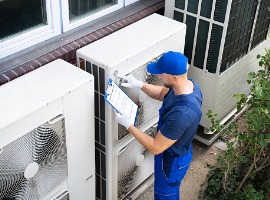
HVAC is a much-needed service across the country for residential and commercial locations. The demand for HVAC services is higher than the supply, leaving HVAC companies scrambling for qualified candidates to fill their positions.
With higher salaries to look forward to, prospective HVAC technicians could become more attracted to the field.
Also, small companies often compete with larger businesses in securing quality HVAC technicians, largely because of the higher pay rates that large companies can provide. If you own a small HVAC business, a salary increase that still fits within your budget can be an excellent way to compete with more substantial companies.
Highly Qualified Candidates
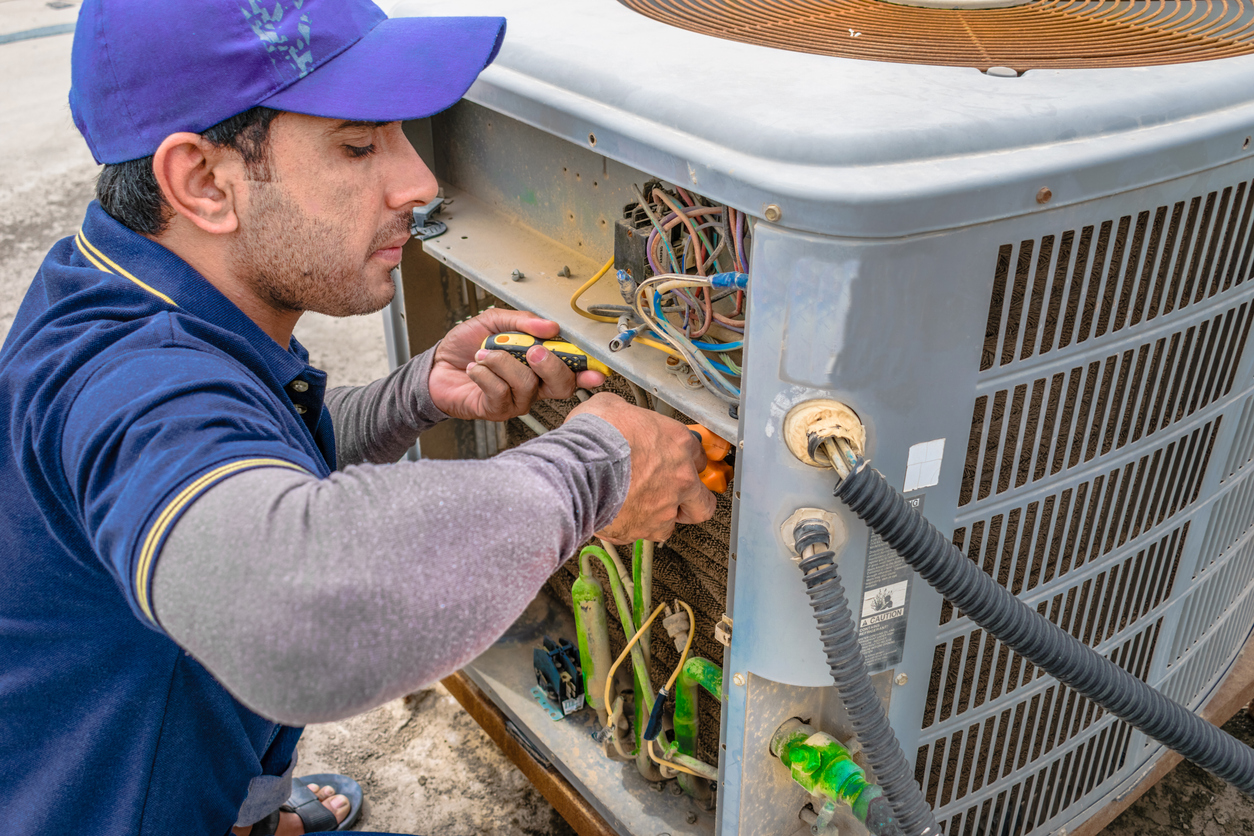
The best way to get qualified HVAC technicians on your team is to reward them with the salary they’re worth. Credentialed candidates with multiple years of experience and a strong portfolio should probably receive a higher salary than the average.
An attractive salary and benefits package can attract people who bring diverse skill sets to the table. You might also gain a technician with expertise in a specialized area that you currently don’t serve with your team.
Put simply, high-quality candidates know what they’re worth and what they deserve in terms of pay, and they probably won’t settle for less.
They’ve Earned It
Pursuing an extensive educational path to become an HVAC technician takes time and money. However, HVAC professionals who are determined to make their services a career are serious about their education, credentials, and licensure.
Consequently, paying an attractive salary rewards qualified candidates who have spent their time and finances to start and build their careers.
Improved Job Happiness and Productivity

Research shows that higher earnings can lead to more happiness with a job and better productivity. Employees of virtually any industry feel more appreciated and that their hard work pays off when they earn more.
It makes sense, then, that HVAC technicians could feel more secure and appreciated in their jobs when they earn higher salaries. Happy workers can easily lead to a more relaxed and productive work environment for your whole team.
Increased Professional Development
Workers who feel that their salaries represent their skills and expertise could be more willing to continue their education or training, especially if a company supports their professional development.
If you can’t afford to bump your technicians’ hourly wages or annual salaries, consider providing an alternative benefit, like continuing education reimbursement or free training workshops. Providing this benefit shows that you’re invested in their futures.
Lower Turnover Rates
Turnover can drain time and money from a company with ongoing hiring and training processes to keep a steady team of workers ready.
HVAC technicians who are happy with their pay rates will probably want to stick with your company longer than those who are dissatisfied. Long-term employees reduce turnover rates, essentially putting time and finances back on your side.

More Revenue
Companies with skilled HVAC technicians could see better revenue than companies with mostly entry-level workers. Customers want to know that their techs are well-qualified to work on their equipment and could be more willing to pay for reputable services.
Start Using HVAC Software
In addition to providing competitive salaries, another way to improve your HVAC business is by incorporating HVAC software like Service by WorkWave into your workflow. HVAC software can help streamline processes, improve communication with clients and team members, and increase efficiency in project management.
Benefits of using Service by WorkWave
Service by WorkWave offers numerous benefits for HVAC businesses looking to effectively manage and attract new customers. Some of the key advantages include:
1. Improved Efficiency: Streamlines operations and helps employees work more efficiently. With features like real-time scheduling, route optimization, and mobile access to important information, employees can complete their tasks more quickly and accurately.
2. Enhanced Communication: Allows for better communication between team members, customers, and management. This leads to fewer misunderstandings, faster response times, and overall improved customer satisfaction.
3. Increased Customer Satisfaction: With improved communication, faster response times, and better service delivery, customers are more likely to be satisfied with your roofing business. This can lead to repeat business, positive reviews, and overall growth.
HVAC Salary: Frequently Asked Questions
The answers to these commonly asked questions about HVAC tech salaries could help you learn more about state averages, high-paying positions, and more.
Do licensed HVAC technicians earn more than unlicensed ones?
Many states require HVAC technicians to hold a license. However, any technician can still pursue licensure, which typically requires a minimum amount of education, experience, or training and passing an exam. The extended time and money it takes to become licensed can lead to higher wages.
If your HVAC technicians hold a license, they’re proving that they have the knowledge and skills necessary to perform various HVAC jobs, which would warrant a salary boost.
Do HVAC professionals make good money?
HVAC technicians can make good money by combining education, training, experience, and skills, and finding the right employer who values what they bring to the table.
HVAC salaries also vary by state. Some states, such as California, Alaska, and Hawaii, have the highest average salaries for these professionals. In contrast, Arkansas, West Virginia, and Tennessee have among the lowest salaries.
Years of experience also come into play. Payscale notes a more than $12 per hour difference between entry-level HVAC techs and those with 20 or more years of experience.
How much do HVAC techs make in the United States?
As of May 2020, the BLS states that HVAC technicians earn a median pay of $50,590. Salaries range from $31,910 to $80,820 across the country.
However, each state differs in its average wage. BLS data shows Alaska as the top payer with $79,630 a year, while Arkansas pays the lowest mean wage at $41,750 per year. Some metropolitan areas within these states may pay more than the state’s mean wage.
Commissions and bonuses can also increase an HVAC salary.
How much does HVAC make with more education and training?
Education and training for HVAC technicians can build the necessary skills and keep them up-to-date with the latest tools and techniques. Therefore, continued professional development can increase salaries significantly, especially with more years of work experience.
Research shows that earning a degree in HVAC studies can increase salaries by as much as 32%.
What is the best-paid HVAC job?
Although this guide features HVAC technician salaries, the HVAC industry offers plentiful opportunities for diverse careers.
According to ZipRecruiter, several of these careers can lead to attractive salaries. Thermal engineers, project managers, air conditioning engineers, and HVAC engineers are among the best payers, with thermal engineers potentially earning over $100,000 annually.
Other promising HVAC careers in terms of salary include CFD engineers, sales representatives, and estimators.
Can HVAC techs make six figures?
Based on the HVAC salary data we pulled from multiple sources, it is unlikely for most HVAC technicians to earn six figures in any state. Still, the BLS shows that the upper average salary range in the nation falls at $80,820, so some techs can potentially earn $100,000 or more.
The top earners likely have several years of experience, along with licensure or certification. They also may live in high-paying states for HVAC technicians, like California or New York, or in a metropolitan area that pays higher wages.
Where do HVAC installers make the most money?
According to the BLS, Alaska, Hawaii, Washington, and Massachusetts pay the highest average annual salaries for HVAC technicians. The District of Columbia also tops the list with an average salary of $73,460 a year.
Within those and other states are also high-paying metropolitan areas, including Fairbanks, Alaska; Napa, California; and Seattle-Tacoma-Bellevue, Washington.
These average salaries for your state can guide how much to pay your HVAC technicians. Still, they don’t factor in experience levels, education, licensure, and other credentials specific technicians may have, which are important to consider when outlining a compensation package.
Is commercial HVAC salary different from residential HVAC salary?
Commercial techs work with complex, large equipment and may service massive buildings daily. Therefore, an HVAC commercial salary can be more per hour than that of residential HVAC technicians because their jobs typically require different skills.
Another reason commercial HVAC may pay higher salaries is that companies serving commercial properties tend to earn more revenue. Their jobs are more complicated and lengthy, leading to larger invoices. They also usually have recurring contracts for clients who need their services routinely throughout the year.

